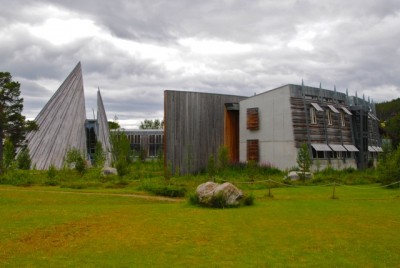Karasjok in Northern Norway is known as a capital of Sami culture with long cold winters, equally long light summer days and wide open spaces. Not everyone wants to live there, though, and several refugee families from Syria are suffering culture shock in Karasjok. Like growing numbers elsewhere, they just want to go home.

That’s extremely difficult if not impossible when “home” is Aleppo in Syria, which has suffered some of the worst bombing and destruction during the Syrian civil war. It’s not unusual, though, according to Steve Hamilton of the International Office for Migration (IOM) in Oslo.
“They expected they could find new jobs and work in their new host countries, that they would be able to support their families themselves and contribute to the communties where they arrived,” Hamilton told Norwegian Broadcasting (NRK) this week. “But here, there are few who get jobs, and their qualifications are often not recognized.”
Strict Norwegian standards often close the door to the job market for refugees and many immigrants, even for returning Norwegians who have studied or worked abroad. Efforts have been launched to make it easier for foreigners and Norwegians with foreign backgrounds to have their education, university degrees and work experience accepted and approved, but progress is slow.
Now many refugees in Norway have sought help to travel back to their homelands or even refugee camps, also before their applications for asylum have been processed. They expected to get clarification (of their asylym or residence status) within a certain period of time,” Hamilton told NRK. “When they discover that it takes much longer time (up to two years in some cases, because of Norway’s extensive background checks and overburdened staffers at immigration agency UDI), they feel a need to evaluate whether they can wait so long for an answer that may be negative.”
Dream of ‘paradise’ shattered
For the Ibrahim family in Karasjok, it’s also a matter of adjusting to the darkness of winter, the weather and the lack of a feeling of purpose. They stressed to NRK that people in Karasjok have been kind to them and they are grateful to have been settled last autumn in what they describe as a fine home that even was supplied with fresh fruit and toys for the children.
The family, used to living in the large, historic city of Aleppo before they had to flee, is still having a tough time. “We thought we’d be going to paradise when we went to Norway, and that everything would be fine,” Jalilah Asad Ibrahim, who has seven children, told NRK through an interpreter. “But since we arrived, we haven’t had a single good night’s sleep. The children cry every day.”
Their transition to the darkness and cold in the small town of Karasjok is difficult, with local newspaper Ságat reporting that 11 of 16 refugees resettled in Karasjok want to leave. Ibrahim stressed that they have good neighbours and the children’s teachers are “very good,” but the family still speaks mostly only Arabic and feels lonely. “My children can’t follow everything in the classroom,” Ibrahim said. They also sorely miss family and friends after the war disrupted all their lives.
Large increases in voluntary returns
They’re not alone in regretting that they fled to Europe. The IOM helped nearly 1,500 people last year who voluntarily left Norway to travel back home, up 25 percent from the year before when record numbers of refugees arrived in Norway. NRK reported that IOM assisted more than 81,000 migrants in Europe to do the same, up nearly 50 percent from 2015.
“The children aren’t happy here,” Ibrahim told NRK. “The sun never comes up, we haven’t seen the sun for several months.” They had fled Syria and landed in a refugee camp Lebanon, from which they were eventually flown to Norway without knowing where in the country they’d be settled. They chose to travel to Norway, because of the children, so they could get good educations.
Now “the children want to go back to the tent in Lebanon, where they could play out in the sunshine all day with relatives and friends,” she said. “Here it’s cold and dark.”
newsinenglish.no/Nina Berglund

